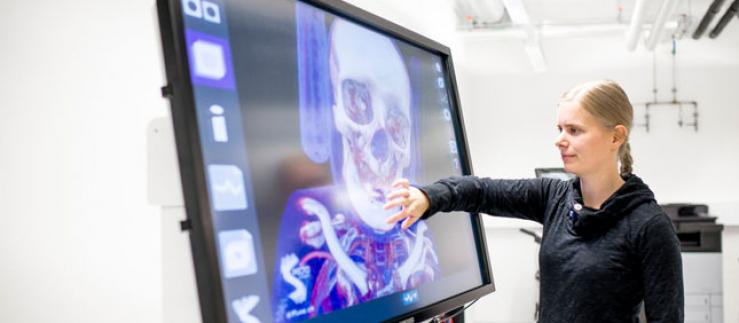The University of Bern has announced a breakthrough in treating ulcerative colitis, a chronic inflammatory bowel disease, with the development of a new lipid gel that offers localized treatment to the inflamed intestine. This novel approach promises to mitigate the side effects commonly associated with current therapies.
Typically, ulcerative colitis treatments that are ingested or injected can disperse throughout the body, leading to potential side effects. Recognizing this, a collaborative team from the Department of Chemistry, Biochemistry and Pharmaceutical Sciences and the Institute of Tissue Medicine and Pathology at the University of Bern, along with colleagues from the University Hospital Zurich, engineered a self-forming lipid gel. This gel directly delivers anti-inflammatory medication to the colon or rectum, providing targeted therapy to those suffering from this debilitating condition.
Patients with ulcerative colitis often experience a myriad of symptoms, including abdominal pain and weight loss, which current treatments fail to adequately address. “For many patients suffering from ulcerative colitis, the side effects of an active principle taken orally can outweigh the therapeutic benefits,” explained Paola Luciani of the University of Bern. The newly developed gel holds promise as it can contain a high concentration of the active ingredient and distribute it directly to the affected area.
The innovative gel is designed to react to body heat. At room temperature, it is fluid and can be introduced into the colon via an enema. Once inside the body, it transforms into a thick gel that adheres to the intestinal wall for at least six hours, gradually releasing medication to the inflamed tissues.
A potentially transformative step in managing ulcerative colitis
In tests conducted using mice with a similar form of intestinal inflammation to human ulcerative colitis, the gel was loaded with approved anti-inflammatory drugs. “The novel delivery form showed very positive results,” states Philippe Krebs from the Institute of Tissue Medicine and Pathology at the University. The treated mice displayed less weight loss, improved inflammation markers, and reduced intestinal wall inflammation compared to the control groups.
Before human trials can begin, the team will conduct further animal model testing. However, Simone Aleandri from the Department of Chemistry, Biochemistry and Pharmacy remains optimistic, saying, “We are confident that with our gel we can reduce the side effects of current therapies.” The aim is to offer a more effective colitis therapy through sustained drug delivery.
The research, supported by the Innovation Office of the University of Bern, the Swiss National Science Foundation, the Bern University Research Foundation, and a “Seal of Excellence Fund” (SELF) of the University of Bern, signals a potentially transformative step in managing ulcerative colitis.




